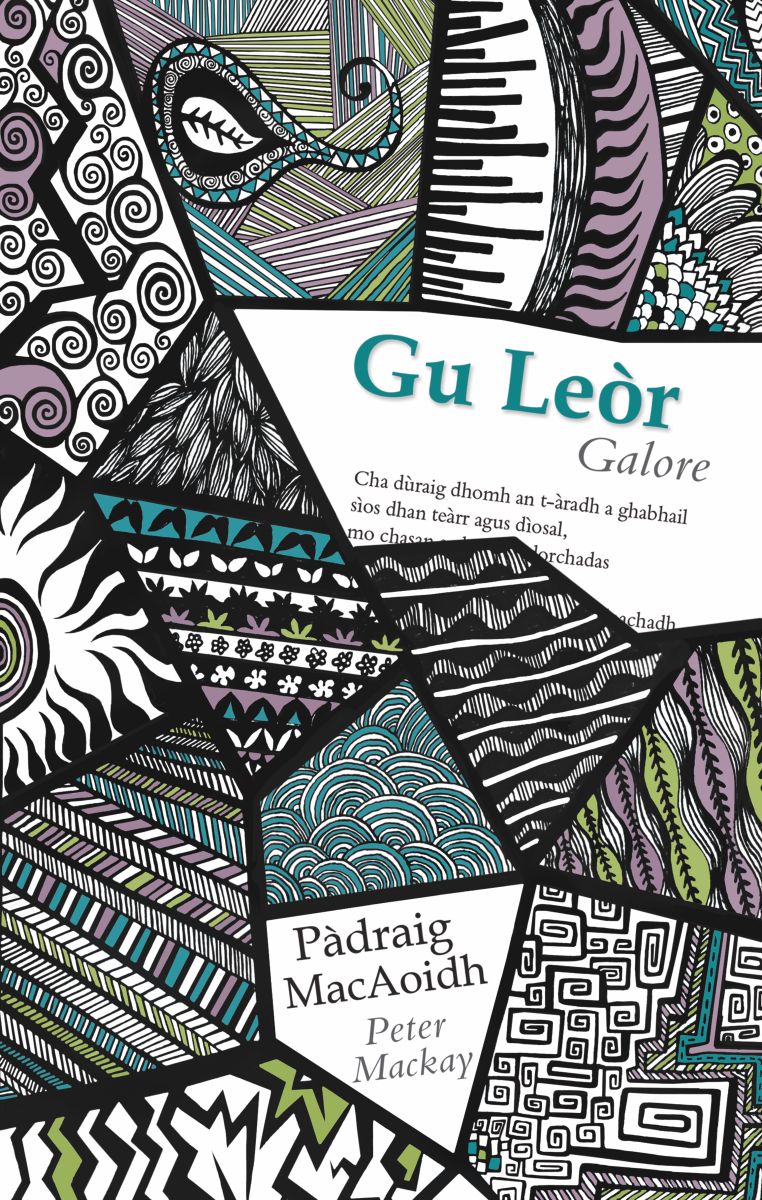Peter Mackay on being Scotland's makar: 'I do get to put my own shape on the role'
As the first Gaelic writer to become Scotland’s National Poet, Peter Mackay is acutely aware of the responsibility he has taken on. Ahead of his three Book Festival events, our new Makar tells Allan Radcliffe that he’s also keen to simply have fun with words
.jpg)
With his appointment as Makar last December, Peter Mackay added the feather of National Poet to an already richly festooned cap. His poetry collections, Gu Leòr (Galore) and Nádar De (Some Kind Of) were shortlisted for the Saltire Society’s Poetry Book Of The Year in 2015 and 2020 respectively. Alongside his day job as senior lecturer in literature at St Andrews University, Mackay, originally from the Isle Of Lewis, has edited anthologies and critical works, and is the author of a major biography of Sorley MacLean, his fellow Gaelic poet.
Prior to his appearance in not one but three events at this year’s Edinburgh International Book Festival, he’s been taking a well-deserved break in Spain. ‘I’m looking forward to having some time to myself to just muck around with words,’ he laughs. Following this two-week sojourn, Mackay’s trio of events will reflect different aspects of his career, and the particular stamp he’ll put on his tenure as Makar.
While the role requires him to work with schools and encourage engagement with poetry across the country, as the first Makar from a bilingual Gaelic-English background, his appointment opens the door to widening interest in Gaelic literature and language. ‘I do get to put my own shape on the Makar role to a large extent,’ he says, ‘and every event that I appear at there will be some Gaelic.’
As a writer who frequently translates his own work into English, Mackay has long been interested in translation, and in the array of languages that are spoken across Scotland. As he points out, all of his Makar predecessors (Edwin Morgan, Liz Lochhead, Jackie Kay and Kathleen Jamie) have written in Scots; indeed, Morgan is renowned for creating an entire alien language for his poem ‘The Loch Ness Monster’s Song’.

For one event, Mackay will lead a workshop on translation, exploring the kinds of challenges that can arise in terms of meaning and sound, allusion, ethics and perspective. A second event, Our Mother Tongues, curated by Mackay, features poets based in Scotland who write in a range of languages, including Polish, Spanish and Arabic as well as Gaelic and Scots. ‘I get a huge amount out of translating. Every poetry translation is different, and when I’m translating my own work, the two versions sometimes grow up alongside each other; and sometimes translating is like writing a whole new poem.’
Mackay will have the stage to himself for his third Festival appearance, a wide-ranging event entitled Meeting One’s Makar. While the recent expansion of his profile and newfound public role appears to run counter to a line in his poem ‘Pluto’ (‘there are advantages in anonymity’), Mackay points to the balance that his four predecessors struck during their own spell in the role. ‘They were all comfortable public speakers, but they would squirrel away time for their own writing.’
Mackay is at ease with the creative requirements of being Makar, including writing to commission and responding to public events. The subjects explored in his two collections and other published poems are diverse, with works ranging from playful vignettes, lyrical engagements with the natural world, and raw, hard-hitting looks at immigration and homelessness. He recognises the stereotypes associated with Gaelic culture but has always pushed back against expectation in his own writing.
‘I think I was about seven or eight when I became aware that Gaelic was a threatened language, and that there was a certain responsibility to writing about, and in, the language. But a poet has to tell different truths, otherwise you can risk falling into platitudes, which really would be the death of a language.’ As an aspiring young writer, Mackay was inspired by the work of Christopher Whyte, who wrote novels in English, including The Warlock Of Strathearn and The Gay Decameron, and poetry in Gaelic. As Mackay makes clear, no subject was off limits for the Glasgow-born author. ‘Whyte’s attitude was always “I’m going to write about what I’m going to write about”, and reading his poetry made me realise I could do the same. It was hugely liberating.’
Our Mother Tongues, 11 August, 6pm; Translating Poetry, 12 August, 1.30pm; Meeting One’s Makar, 12 August, 6pm; all events at Edinburgh Futures Institute.